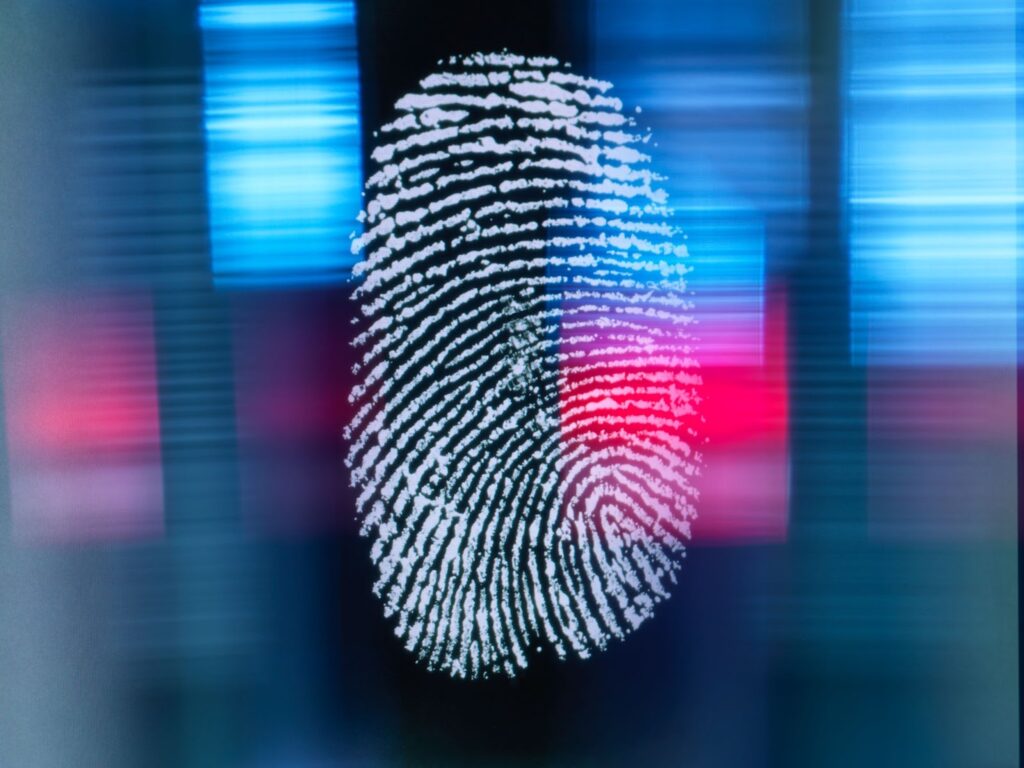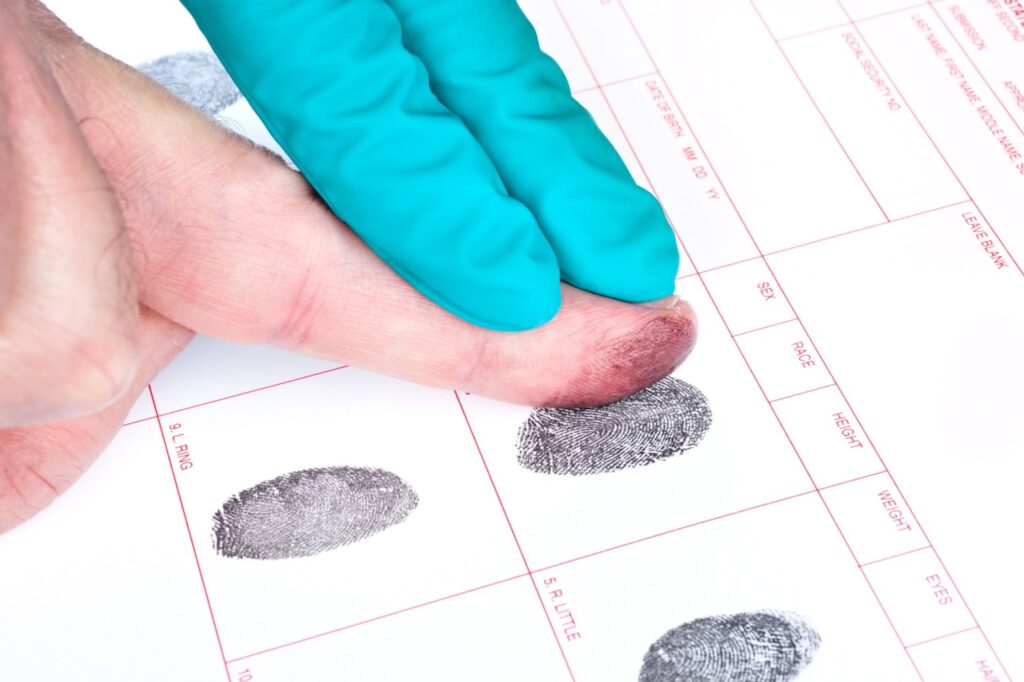
Fingerprint services play a crucial role in conducting thorough and accurate background checks. Whether for employment screening, security clearances, professional licensing, or criminal record verification, fingerprinting is reliable for confirming an individual’s identity. Unlike name-based background checks, which can be prone to errors due to duplicate names or identity theft, fingerprint-based screening ensures precise and secure results. This comprehensive guide will explore why fingerprint services are essential for background checks, how the process works, who needs them, and what benefits they offer over traditional screening methods.
The Importance of Fingerprint-Based Background Checks
Government agencies, law enforcement, employers, and licensing bodies widely use fingerprint-based background checks to verify an individual’s criminal history, employment history, and overall background. This identification method is one of the most accurate because fingerprints are unique to each person and remain unchanged throughout their lifetime.
Unlike traditional background checks that rely solely on name, birthdate, and Social Security Number (SSN), fingerprinting provides an added layer of security. Errors can occur in name-based searches due to clerical mistakes, aliases, or individuals with identical names. Fingerprint scans, however, directly match the person’s biometric data against official databases, eliminating uncertainties. For industries where security, trust, and integrity are paramount, fingerprinting has become a gold standard for verifying an individual’s history.
Who Needs Fingerprint Services for Background Checks?
Many sectors and organizations require fingerprint-based background checks as part of their hiring or credentialing processes. Some of the most common groups that rely on fingerprint services include:
Employers in Sensitive Industries
Employers in high-security sectors such as law enforcement, government agencies, healthcare, finance, and childcare must conduct thorough background checks on potential hires. These industries require fingerprinting to prevent hiring individuals with criminal histories that could put people or sensitive data at risk.
Law Enforcement and Government Agencies
Fingerprint background checks are mandatory for positions in law enforcement, the military, and government agencies. Security clearances often require fingerprint verification to confirm a person’s criminal history and ensure national security.
Healthcare and Medical Professionals
Doctors, nurses, pharmacists, and other healthcare professionals must undergo fingerprint background checks before receiving their licenses. This background check ensures that individuals working in healthcare have no history of abuse, fraud, or criminal activity that could jeopardize patient safety.
Teachers and Childcare Providers
School districts and daycare centers require fingerprint-based background checks to ensure the safety of children. By screening teachers, coaches, and caregivers, educational institutions can prevent individuals with histories of violence or abuse from working with minors.
Financial Institutions and Banking Professionals
Because financial professionals have access to sensitive financial records and transactions, banks and financial institutions conduct fingerprint background checks to ensure employees have no history of fraud, embezzlement, or financial crimes.
Immigration and Citizenship Applications
Fingerprinting is a standard procedure for individuals applying for visas, green cards, and citizenship in many countries. Governments use fingerprint data to cross-check applicants against criminal databases and ensure they meet eligibility requirements.
Professional Licensing Boards
Many professional licensing boards, including those for attorneys, real estate agents, and security personnel, require fingerprint-based background checks before granting a license. This background check ensures that professionals in these fields have no disqualifying criminal history.
Volunteers Working With Vulnerable Populations
Organizations that work with children, older adults, or individuals with disabilities often require volunteers to complete fingerprint background checks, helping to protect vulnerable individuals from potential harm.
How Fingerprint Services for Background Checks Work
Fingerprinting services follow a standardized process to capture and analyze biometric data. While the specific procedure may vary depending on the agency or service provider, the general steps include:
1. Scheduling an Appointment
Most fingerprinting services require individuals to schedule an appointment at an approved facility. Some providers also offer mobile fingerprinting services for convenience.
2. Identity Verification
Before fingerprinting begins, the individual must present valid identification, such as a driver’s license, passport, or government-issued ID, to confirm their identity.
3. Capturing Fingerprints
Fingerprint impressions are taken using either:
Ink Fingerprinting
The traditional method involves applying ink to the fingers and rolling the prints onto a fingerprint card. This method is still widely used for certain government applications, international background checks, and when digital services are unavailable. While effective, ink fingerprinting can be messy and may require additional time for processing, as the physical fingerprint card must be mailed to the appropriate agency for review.
Live Scan Fingerprinting
A digital method that captures fingerprints electronically using a scanner, providing a faster and cleaner process. This modern approach eliminates the need for ink and paper, reducing errors and smudging while allowing for immediate submission to background check databases. Live Scan fingerprinting is often preferred for its speed and accuracy, with results typically processed much faster than traditional ink methods.
4. Submission to Relevant Authorities
After collecting the fingerprints, they are submitted to relevant agencies such as the FBI, state police, or other regulatory bodies for processing. The results are then cross-checked with criminal databases.
5. Background Check Processing
Once submitted, authorities compare the fingerprints against nationwide databases to identify criminal records or prior offenses associated with the individual. The results are then sent to the requesting employer, licensing board, or government agency.

Benefits of Fingerprint Services Over Other Background Checks
Fingerprint background checks offer several advantages over traditional name-based screening methods:
Increased Accuracy
Unlike name-based searches, which can return false positives or negatives due to common names or misspellings, fingerprinting provides a unique identifier that ensures precise results.
Prevention of Identity Fraud
Fingerprinting helps eliminate identity fraud by ensuring that individuals cannot use false identities, stolen Social Security numbers, or fake credentials to pass background checks.
Access to Nationwide Criminal Databases
Name-based searches often rely on limited databases, whereas fingerprint checks provide access to national and international criminal records, including FBI and Interpol databases.
Faster and More Reliable Processing
Digital fingerprinting (Live Scan) allows for quick submission and processing of background checks, reducing wait times for employment or licensing approvals.
Compliance With Legal and Regulatory Requirements
Many industries require fingerprint-based background checks to comply with local, state, and federal laws. Using fingerprinting ensures businesses and organizations meet compliance standards.
Protecting Public Safety
Fingerprint background checks help protect businesses, institutions, and communities from potential threats by identifying individuals with disqualifying criminal records.
Common Misconceptions About Fingerprint Services
Despite their effectiveness, there are several misconceptions about fingerprint background checks that need to be addressed:
“Fingerprinting is Only for Criminals”
While fingerprints are used in criminal investigations, they are also essential for employment, licensing, and security clearances. Many professionals undergo fingerprinting as part of routine background checks.
“Name-Based Background Checks Are Just as Good”
Name-based checks are susceptible to errors, especially for individuals with familiar names or aliases. Fingerprints provide a more accurate and foolproof method of verification.
“Fingerprinting Takes Too Long”
With advancements in digital fingerprinting, results are now processed much faster than traditional ink-based methods. Many agencies receive results within a few days.
“Only Large Companies Require Fingerprint Background Checks”
While large corporations and government agencies often require fingerprint checks, many small businesses, nonprofit organizations, and volunteer programs also use them to enhance security.
The Future of Fingerprint Services in Background Checks
As technology advances, fingerprint-based background checks become more efficient, secure, and accessible. Innovations in biometric screening, digital processing, and artificial intelligence are enhancing the accuracy and speed of fingerprint identification, making this method even more valuable for
employers, government agencies, and individuals.
Advancements in Live Scan Technology
Live Scan fingerprinting has revolutionized background checks by allowing instant electronic submissions to databases like the FBI and state law enforcement agencies. As scanners become more advanced, they can now capture higher-resolution prints, reducing the chances of unreadable scans and ensuring more precise results.
Faster and More Efficient Processing
With automated fingerprint identification systems (AFIS) improvements, background check processing times are decreasing. What once took weeks can now be completed in just a few days, making hiring processes and security screenings more efficient for businesses and institutions.
Enhanced Security and Fraud Prevention
Fingerprint-based background checks play a key role in identity verification, reducing the risk of fraudulent applications and identity theft. As more industries adopt biometric authentication, fingerprinting is helping to create safer workplaces and secure transactions in banking, healthcare, and government services.
Expanding Use Beyond Traditional Background Checks
Fingerprinting is no longer limited to law enforcement or government jobs. More industries are integrating biometric screening for hiring, licensing, and compliance. From ride-share companies to volunteer organizations, fingerprint-based checks are becoming a gold standard for trust and safety.
Increased Accessibility for Individuals and Businesses
With mobile fingerprinting services and expanding Live Scan locations, getting fingerprinted is now easier than ever. Businesses can schedule on-site fingerprinting for employees, and individuals can access certified services without long wait times. This convenience is making background checks more accessible for employers and job seekers alike.
A Bright Future for Fingerprint-Based Screening
Fingerprint services are continuously evolving to meet the needs of a fast-paced, security-conscious world. As technology improves and adoption expands, fingerprint background checks will become more seamless, accurate, and widely used. Their unmatched reliability will remain crucial for ensuring safety, compliance, and trust across industries.

The Critical Role of Fingerprint Services in Background Checks
Fingerprint services are essential to comprehensive background checks, providing high accuracy, security, and reliability. They are critical in employment screening, professional licensing, law enforcement, and national security. Using fingerprint-based background checks, employers and organizations can protect themselves from hiring risks, prevent identity fraud, and ensure compliance with legal requirements. If you need fingerprint services for background checks, look for a certified provider that offers Live Scan technology for quick and efficient processing. Ensuring the integrity of background checks through fingerprinting is one of the best ways to promote safety and security in any industry.
Visit our Arkansas Investigations blog to learn more about the benefits of fingerprint services and stay updated on the latest trends in background screening.

